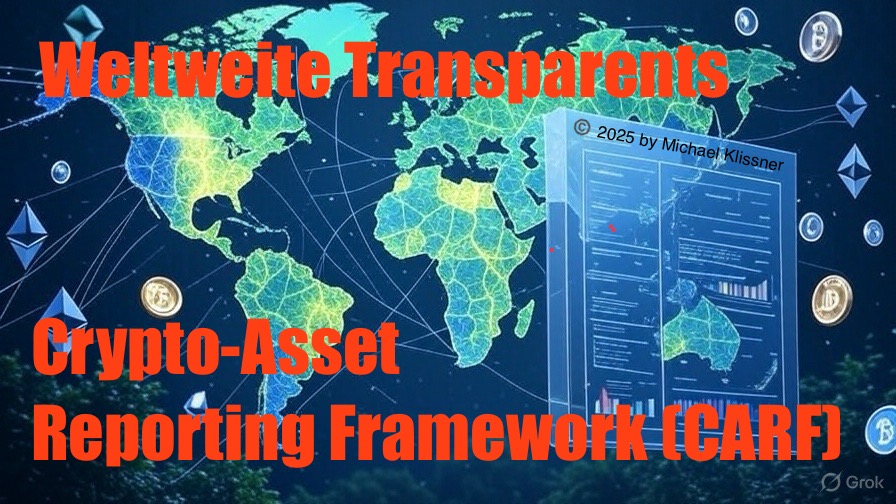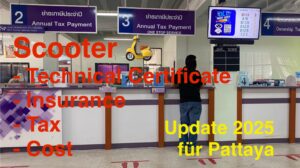First yesterday’s “Crypto Asset Tax Transparency Act (KStTG-E)” and now the “Crypto Asset Reporting Framework (CARF)”—I told you so! Now comes global transparency for digital currencies—except for Krypton, which is not included in the CBDC. The CBDC doesn’t need it because it’s already integrated. You won’t need a slide rule to put two and two together.
They can’t control cryptocurrencies, and there is no 100% reliable information. Some of the wallets currently in use, especially hardware wallets, are still anonymous. Therefore, they are dependent on the data they want to obtain elsewhere.
The OECD’s Crypto-Asset Reporting Framework (CARF) is a global set of rules designed to increase tax transparency for crypto assets and prevent tax evasion. Developed on behalf of the G20 in April 2021 and adopted in August 2022, CARF complements the Common Reporting Standard (CRS) for traditional financial accounts.
Video: Crypto-Asset Reporting Framework (CARF): Overview and Participants
Language: 🇩🇪
☝️ Use YouTube subtitles for all languages.
Key points of the CARF
- Goal: Ensuring tax compliance through automatic data exchange between countries.
- Definition: CARF covers digital assets such as cryptocurrencies, stablecoins, and certain NFTs based on blockchain technology. Central bank digital currencies (CBDCs) are excluded.
- Reporting entities: Crypto exchanges, wallet providers, and other service providers (RCASPs) must report transaction data (e.g., crypto-to-crypto, crypto-to-fiat, transfers) and customer information.
- Due diligence: RCASPs use AML/KYC processes to determine the tax residency of customers.
Participating countries and schedule
67 countries have committed to implementing CARF by 2027 or 2028:
- 2027 (52 countries): Including EU member states (Austria, Germany, France, etc.), Australia, Canada, Japan, Switzerland, South Africa, Bermuda, Brazil, Jersey.
- 2028 (15 countries): Including the US, Singapore, the Bahamas, Thailand, Turkey, and the United Arab Emirates.
- EU: The DAC8 Directive will implement CARF by the end of 2025, with the first reports due in 2027.
Non-participants: Countries such as China, India, Russia, Argentina, El Salvador, Panama, and Vietnam have not yet committed to the initiative, creating potential gaps in the global system.
Challenges
- Compliance burden: Companies must adapt IT systems, investors must document their transactions in detail.
- Different timelines: Different implementation deadlines (2027/2028) could cause inconsistencies.
- Non-participants: Large crypto markets such as China or India could serve as loopholes.
Conclusion
CARF is an important step toward global tax transparency in the crypto market. While 67 countries, particularly the EU, are pushing ahead with implementation, non-participants and differing timelines could limit its effectiveness. Companies and investors should prepare for increased reporting requirements starting in 2027.
Note: This information does not constitute tax or legal advice. For binding information, please consult a tax advisor or a qualified lawyer.
What is the OECD?
The OECD is not an NGO, but neither is it a purely governmental authority in the traditional sense. It is an intergovernmental organization.
This means:
- It was founded by states (originally 20 countries in 1961).
- Today, it has 38 member states, which make decisions jointly.
- It is financed by contributions from these member states.
- It has no legislative power of its own, but it advises, analyzes, and coordinates policy—which makes it influential.
So: The OECD is organized by governments, but it acts independently and in an advisory capacity, without making binding decisions like a government or a court. That is why it falls somewhere between a “government agency” and a “think tank with political influence.” But it is not an NGO, because it is not based in civil society, but rather in government.

Support / Donation Link for the Channel
If my posts have been helpful or supported you in any way, I’d truly appreciate your support 🙏
#CryptoAssets #CryptoAssetReportingFramework #CARF #Crypto #Coins #Bitcoin #Altcoins #Taxes #Monitoring #TransparentCitizens #Laws #CryptoRegulation




Pingback: 22. July 2025 | Michael Klissner